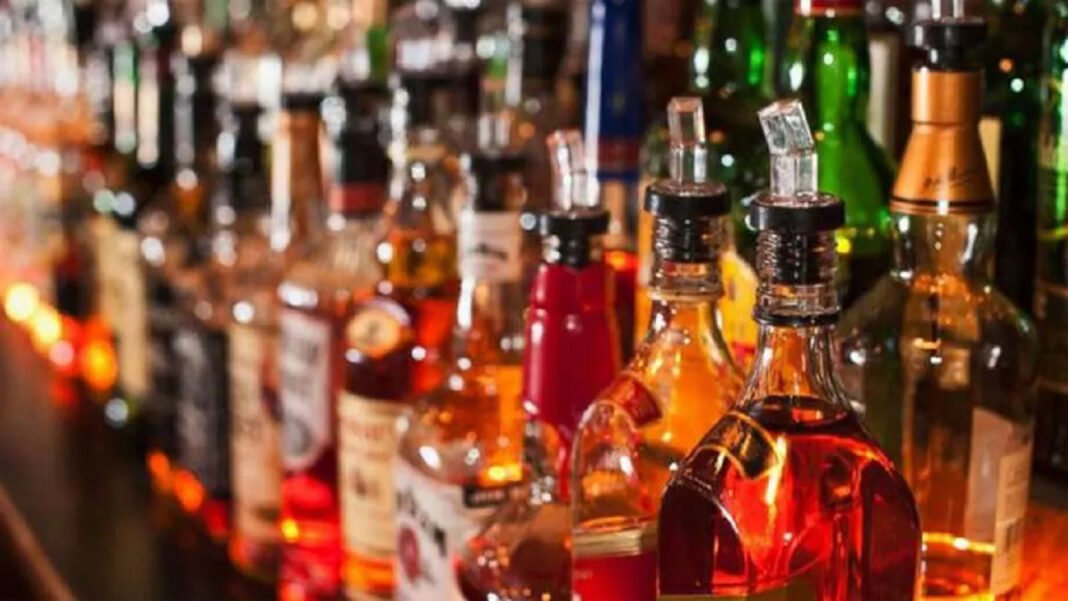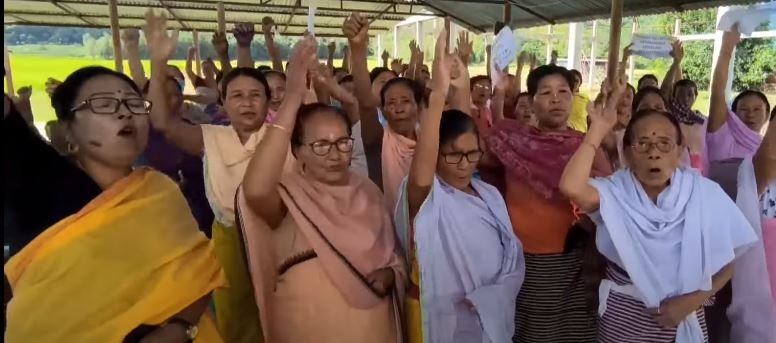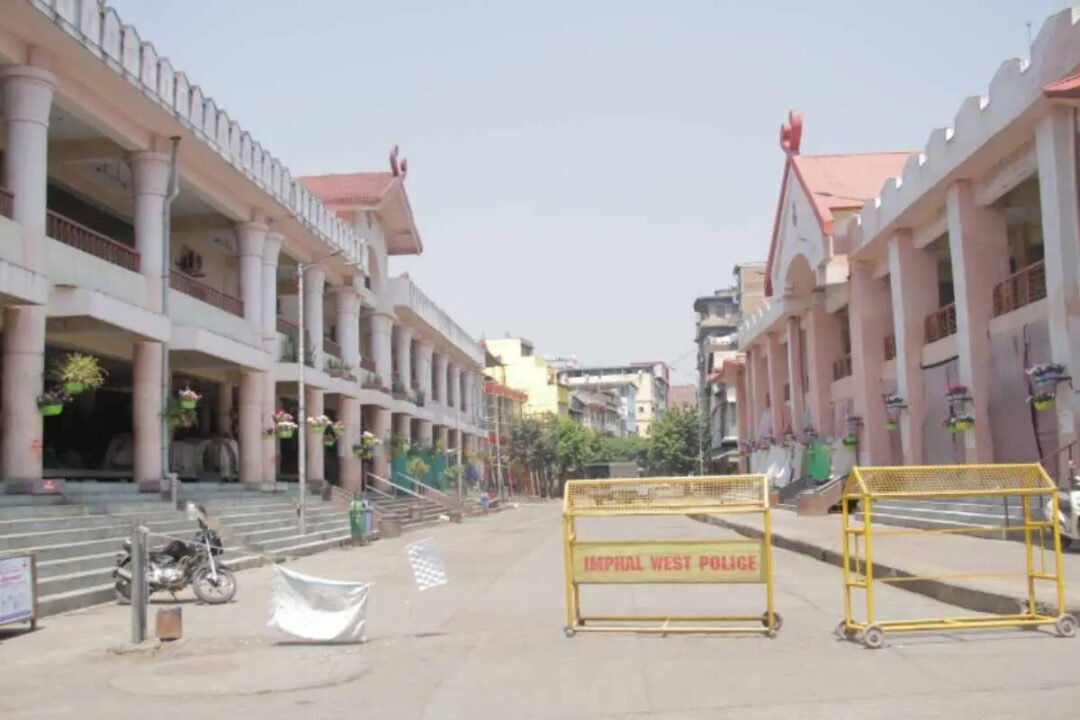IMPHAL, Oct 10: All Manipur Women’s Social Reformation and Development Samaj (Nupi Samaj), while reiterating its firm stand against legalization of liquor, on Sunday rejected the Draft Manipur Liquor Regulation Policy.
Amid the objections against the move to legalize liquor, the state government recently framed the liquor regulation policy having eight aims and objectives.
“We cannot agree with the draft policy,” said Nupi Samaj president Th Ramani Devi while talking to reporters at a sit-in-protest staged at Heirangoithong in Imphal West district on Sunday.
The apex body of the women’s bodies organised the protest in association with the local Meira Paibis (local women body) as a part of its series of demonstrations against the government decision.
She asked whether the state government has no other sources to generate state’s revenue other than liquor. She further wanted to know the meaning of quality local products (liquor).
She was referring to one of the points of the draft policy stating that the state government would provide technical and other support for producing quality local products and supporting marketing and export outside the state.
Th Ramani Devi alleged that they never expected that the government led by chief minister N Biren Singh who always talked for the welfare and upliftment of the society would take such a decision.
“We never expected that chief minister N Biren Singh who claimed to be people’s chief minister would take such a decision,” she said.
While reiterating Nupi Samaj’s firm stand, Th Ramani Devi demanded that the state government must revoke the decision at the earliest or face the wrath of the women.
Mention may be here that amid the objections raised from various sections of the society, particularly women bodies, the state government circulated a policy document on legalization of liquor through social media.
The aims and objectives of the policy included eradication of distillation, transportation, possession, consumption and sale of illicit liquor, restricting availability of local liquor as well as IMFL (Indian Made Foreign Liquor)/FMFL (Foreign Made Foreign Liquor), reducing the impact of illicit and adulterated liquor on health.
It also aims to reduce the demand of intoxicating drinks, addressing the menace of illegal drugs, generating employment, generating revenue of the state, and addressing the problem of black marketing of liquor on account of ‘prohibition’. (NNN)







